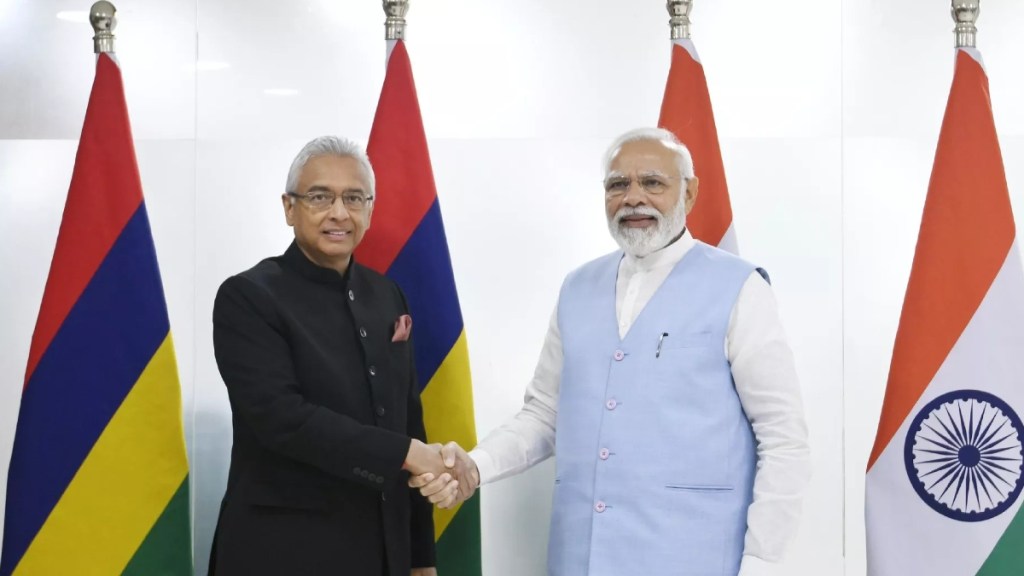India has hailed the agreement between the United Kingdom and Mauritius regarding the return of Mauritian sovereignty over the Chagos Archipelago, marking a significant diplomatic victory in the region. This understanding, reached after two years of negotiations, addresses the decolonization of Mauritius and aligns with India’s long-standing support for the sovereignty and territorial integrity of nations.
MEA Issues Statement
On Thursday evening the Ministry of External Affairs (MEA) issued a statement affirming India’s position, stating: “India has consistently supported Mauritius’s claim for sovereignty over Chagos, in line with its principled stand on decolonization and support for the sovereignty and territorial integrity of nations, as well as its longstanding and close partnership with Mauritius.” The statement underlined India’s commitment to uphold international law and promote stability in the Indian Ocean region, in line with the country’s broader maritime security interests.
Strategic Implications for the Indian Ocean Region
The agreement also holds broader implications for the geopolitical landscape of the Indian Ocean. Diego Garcia, the largest island in the Chagos Archipelago, will remain under the control of the UK and the US for military purposes, with operations continuing for at least another 99 years. Diego Garcia plays a crucial role in military operations across the Middle East, South Asia, and East Africa, making it one of the most strategically important military bases in the world.
India’s positive reception of the agreement reflects its own maritime security objectives, particularly in strengthening peace and stability in the Indian Ocean. The country has always been a key stakeholder in regional security, and this agreement further cements the importance of collaboration between nations for safeguarding maritime borders and addressing security challenges. The MEA statement reiterated that India is committed to working with Mauritius and other partners to “strengthen maritime safety and security and contribute to enhanced peace and prosperity in the Indian Ocean region.”
Decolonization and Diplomatic Significance
The resolution of the Chagos dispute represents a victory for Mauritius and a completion of its decolonization process. The UK’s agreement to cede sovereignty over the islands marks a historic moment, ending a long-standing territorial issue that has been the subject of international legal debates and United Nations resolutions. India, having supported Mauritius’s claim for decades, sees this as a reaffirmation of the principles of decolonization and international law.
The Chagos Archipelago dispute had attracted global attention, with the International Court of Justice (ICJ) ruling in favor of Mauritius’s sovereignty in 2019. The ICJ deemed the UK’s continued administration of the islands as unlawful, further pressuring the UK to resolve the issue. India, as a vocal supporter of the ICJ ruling, played a diplomatic role in advocating for Mauritius’s rights, consistent with its broader foreign policy stance on decolonization.
Strengthening Bilateral Ties with Mauritius
India’s strong endorsement of the UK-Mauritius agreement also underscores its deep and enduring ties with Mauritius. As part of a shared historical and cultural relationship, both nations have continued to collaborate across various sectors, including trade, defense, and maritime security. By welcoming this agreement, India reinforces its commitment to supporting Mauritius as it navigates this new phase of its sovereignty over the Chagos Archipelago.
This diplomatic milestone opens doors for enhanced cooperation between India and Mauritius, especially in areas of regional security and economic development. For India, it is an opportunity to further solidify its influence in the Indian Ocean, a region where geopolitical competition has been increasing, particularly with China’s growing presence.

